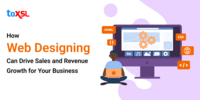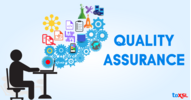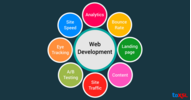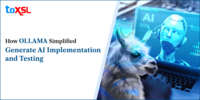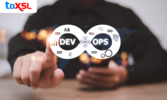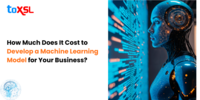- Jul 09, 2025
Share this post on:
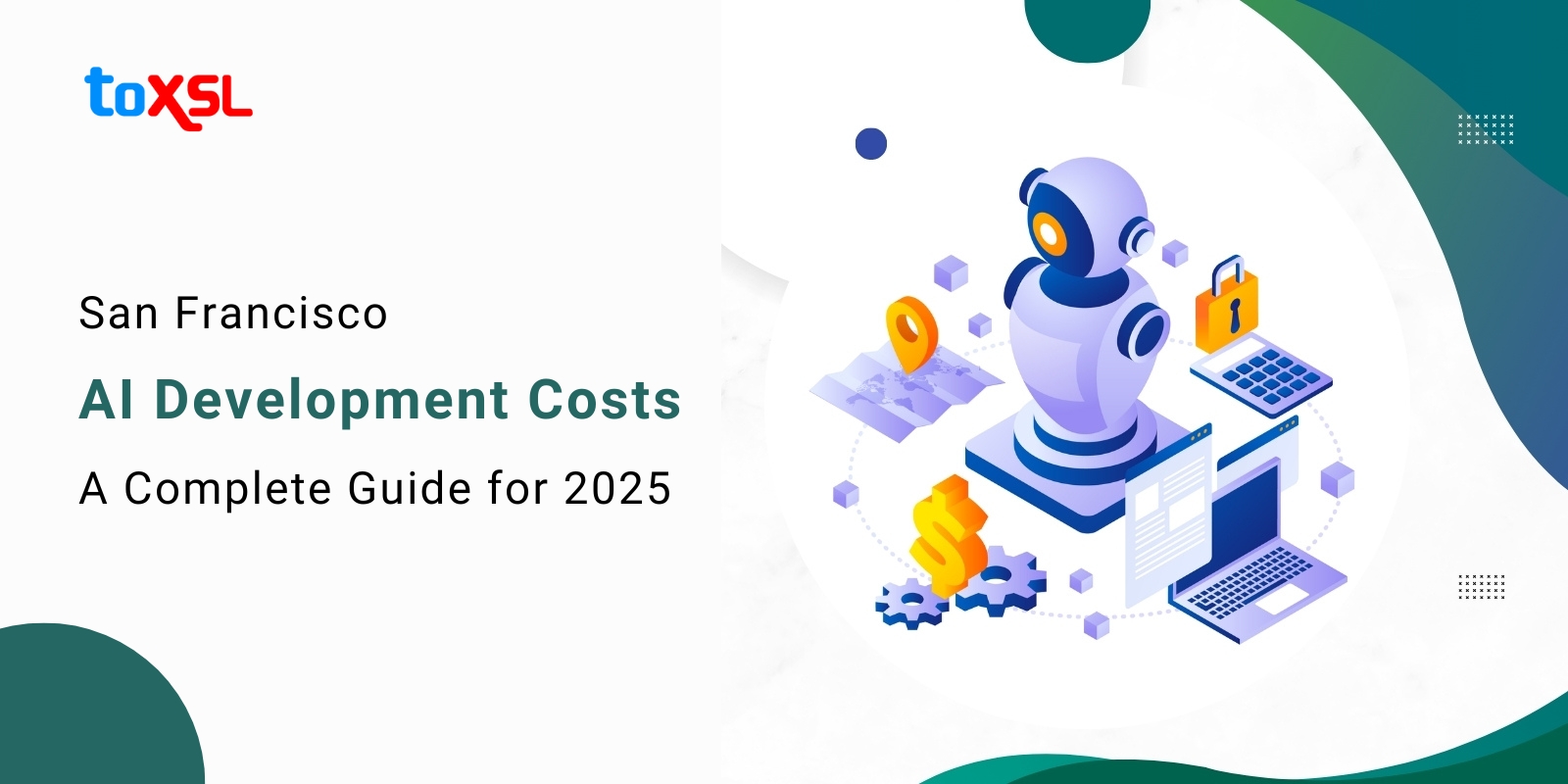
Looking to develop AI solutions that can help your business grow? According to Exploding Topics, the global AI market is projected to reach $1.85 trillion by 2030. Goldman Sachs has improved its productivity growth by 1.5% and raised the global GDP by 7%, the equivalent of $7 trillion.
The adoption of AI has maximized business potential, streamlining business workflows and amplifying operational efficiency. So, if you are considering developing an AI solution for your business, you might be wondering about the cost associated with the development. How much does it cost to develop an AI solution? AI offers various benefits to businesses helps them boost business revenue and streamlines overall workflow processes that will reshape businesses. With advanced AI, ML, and deep learning algorithms the cost of developing AI solutions can vary.
In this blog, we will help you understand AI solution development costs in San Francisco, and the factors associated with the cost:
Cost of Developing an AI Solution in San Francisco?
With the advent of AI, businesses are constantly changing. However, this change comes at a cost. The basic AI models cost ranges from $3000 to $5000, while advanced AI models range from $10,000 to over $150,000. However, the cost is not fixed, it heavily depends on the hiring company. Every company has a different price range, depending on its experts, experience, and location. Also, prices will change industry-wise, project complexity, and more.
What are the factors associated with AI Solution Development Costs?
Let us look at the factors associated with AI solution development costs:
Project Scope: The cost of a project increases with its demand and becomes more complex. Further, if you are looking to incorporate an AI-powered self-driving system in your business, then the cost can increase. As these systems are more complicated and require more effort, they increase the cost by 30 to 40%. Also, if the project is big, it may need the incorporation of APIs, user interfaces, and backend systems, adding more to the cost.
Data Availability: Clean and high-quality data lowers the time and work required for training and preparing data, which increases the cost. Data cleaning is a challenging task and needs lots of investment and takes up to 25% of the funds. In case, data is not available, then you might have to generate fake data or buy external datasets.
Development Team: How much you pay AI developers and experts depends on where they work and how experienced they are. Hiring a team from outside your company (outsourcing) can often be cheaper than building your in-house team. Usually, paying the team makes up about 20 to 40 percent of the total cost to create an AI solution. If your project needs special skills like machine learning engineers, data engineers, or DevOps experts, the costs can go higher.
Infrastructure Requirements: Building AI usually requires strong tools and cloud computing power. Using GPUs and services like AWS, Google Cloud, or Azure adds to the cost, which is typically about 15 to 25 percent of the overall budget. For projects that need a lot of computing power, like training deep learning models, you might need powerful computer clusters or systems that spread the work across multiple machines.
Maintenance and Updates: To keep AI systems useful and competitive, they need regular updates and retraining. This ongoing maintenance adds to the long-term costs. Usually, maintaining an AI system costs about 10 to 20 percent of the total project budget each year. This work involves adapting to changing business needs, adding new data, and keeping up with new technologies or legal requirements.
Benefits of Developing an AI Solution?
Developing an AI solution offers a wide range of benefits across industries, driving efficiency, innovation, and improved decision-making. Here are the key advantages:
Automation and Efficiency: AI automates repetitive, tedious, and time-consuming tasks, allowing businesses to streamline processes and boost productivity. For example, AI-powered robots in manufacturing reduce assembly time and errors while improving safety. In software development, AI automates code compilation and quality testing, accelerating project timelines and reducing costs. This automation enables human workers to focus on higher-value, creative, or strategic tasks.
Enhanced Decision-Making: AI systems analyze vast amounts of data quickly and accurately, uncovering patterns and trends that humans might miss. This supports smarter, unbiased, and data-driven decisions in real-time. For instance, predictive analytics in e-commerce optimize inventory management, while AI in healthcare assists in diagnosing diseases by analyzing medical images. AI’s ability to provide insights leads to better business outcomes and more informed strategies.
Improved Customer Experience: AI-powered chatbots and virtual assistants provide personalized, instant support around the clock, enhancing customer satisfaction and reducing the workload on human agents. Retailers use AI to recommend products based on user behavior, improving engagement and sales.
Faster Time-to-Market and Innovation: AI accelerates product development by generating design concepts rapidly, identifying errors early, and enabling virtual testing. This can cut development cycles by up to 50% and reduce R&D costs significantly, leading to quicker commercialization of better products. In software, AI helps deliver higher-quality applications faster by automating testing and providing real-time feedback.
Quality and Accuracy: AI reduces human error by performing tasks with high precision, such as robotic surgery in healthcare or defect detection in manufacturing. This leads to improved product quality, safety, and reliability.
Cost Reduction: By optimizing resource allocation, automating manual processes, and minimizing errors, AI solutions help businesses reduce operational costs and increase profitability. Examples include predictive maintenance in manufacturing and fraud detection in finance.
24/7 Availability and Scalability: Unlike humans, AI systems can operate continuously without breaks, handling multiple tasks simultaneously while maintaining consistent performance. This ensures uninterrupted service and scalability to meet growing demands.
Solving Complex Problems: AI tackles challenges that are difficult for humans alone, such as fraud detection, disease prediction, and complex data analysis. It supports proactive risk management and business continuity by forecasting potential issues and suggesting solutions.
Technologies Used to Develop AI Solutions
Here are a few technologies that are used to develop AI solutions:
Machine Learning: Machine learning trains models how to spot patterns in data and use those patterns to make predictions. How much it costs depends on how much data you have, how much work is needed to clean and prepare that data, and how complex the algorithms are. You’ll find machine learning everywhere, from catching fraud in banking, and suggesting products you might like, to predicting what customers will want in the future. Plus, it helps create smart systems that learn from how people behave over time, making experiences more personalized and useful.
Natural Language Processing: Natural Language Processing, or NLP, lets computers understand and work with human language. It’s used for things like translating languages, helping robots communicate, and figuring out the emotion behind text messages or reviews. The cost of NLP depends on how many languages you want to include, the type of training needed, and how much it needs to connect with other systems. NLP is what makes voice assistants and speech-to-text apps possible. For businesses, it’s a great tool to simplify customer support and to pull useful information from lots of unstructured text data.
Computer Vision: Computer vision is an AI technology that helps machines recognize faces, objects, and other details in photos and videos. The cost depends on factors like how clear the images need to be, how precise the recognition should be, and the type of software used. This technology is used in many fields—for example, in healthcare to examine medical scans, in retail to keep track of inventory, and in advanced areas like security monitoring and self-driving cars.
Final Words:
Investing in AI can offer great value to businesses who want to improve business experiences, and simplify their business processes. So, if you are looking to invest in AI app development services, look no further than ToXSL Technologies. We are a leading AI development company renowned for offering the most innovative AI solutions to businesses worldwide. Our team of expert AI developers is well-versed with the latest trends in AI and knows exactly what you will need for your business that will help you grow and expand your business.
Want to learn more? Contact us today and learn how we can help you streamline your business using our AI development services.


